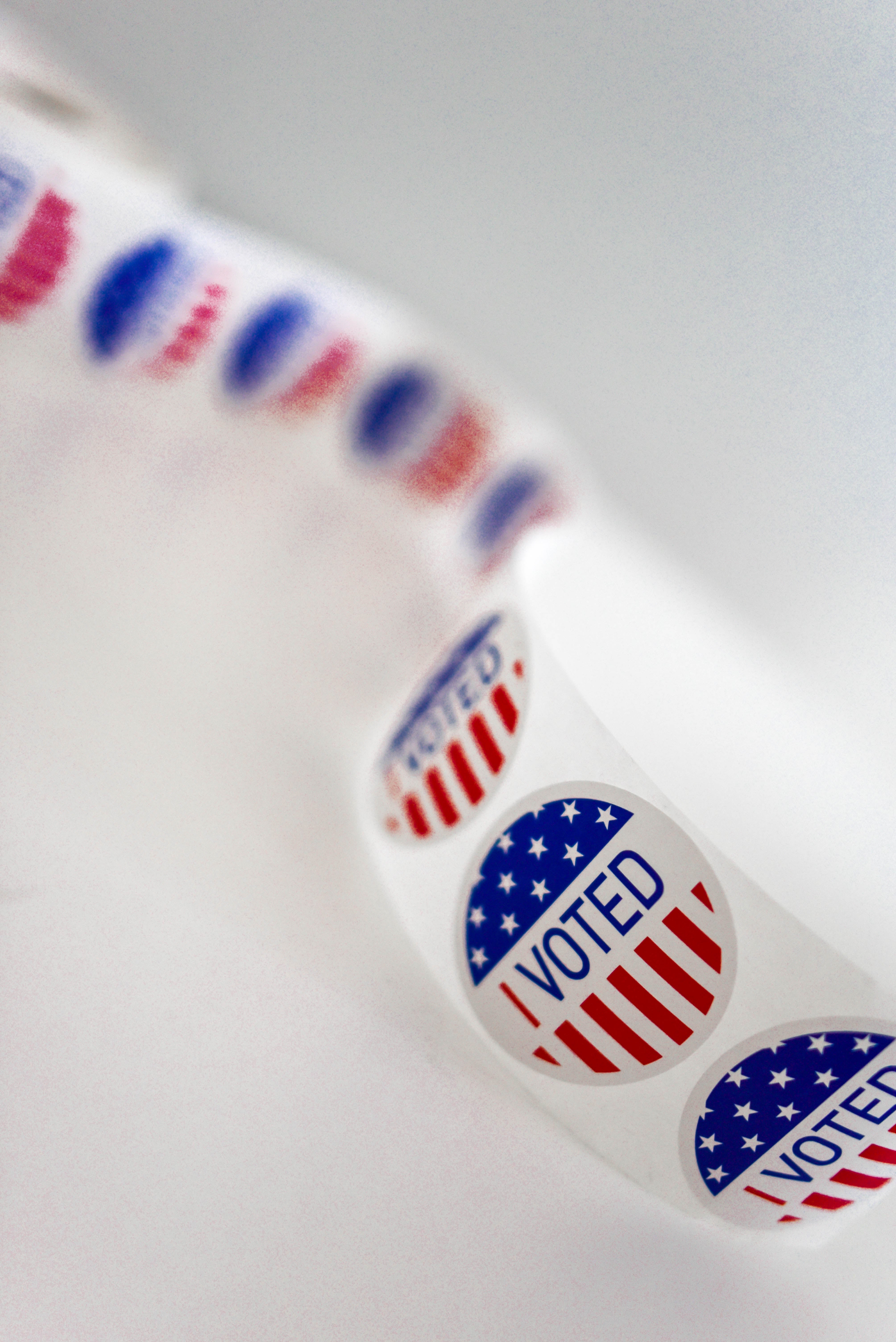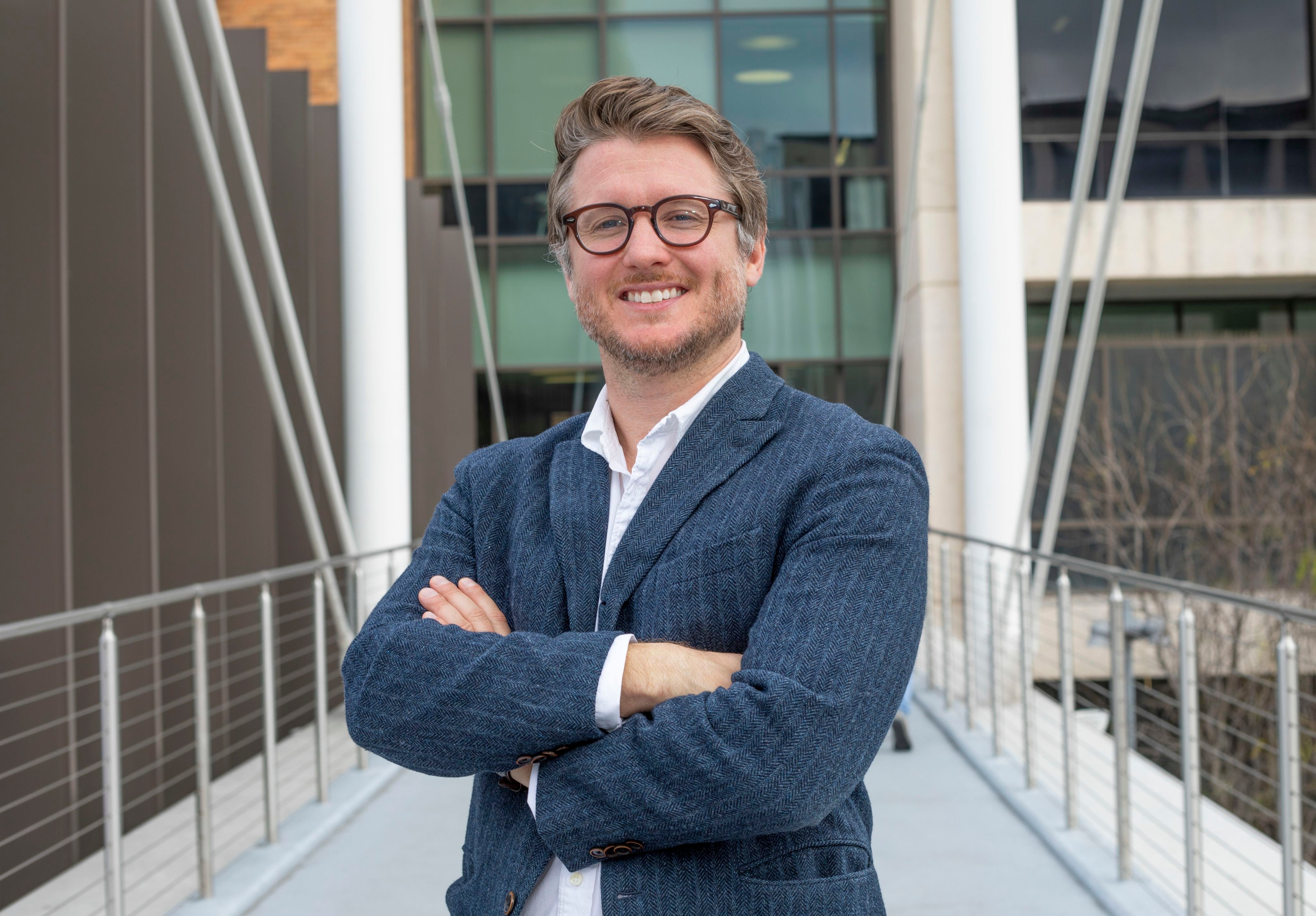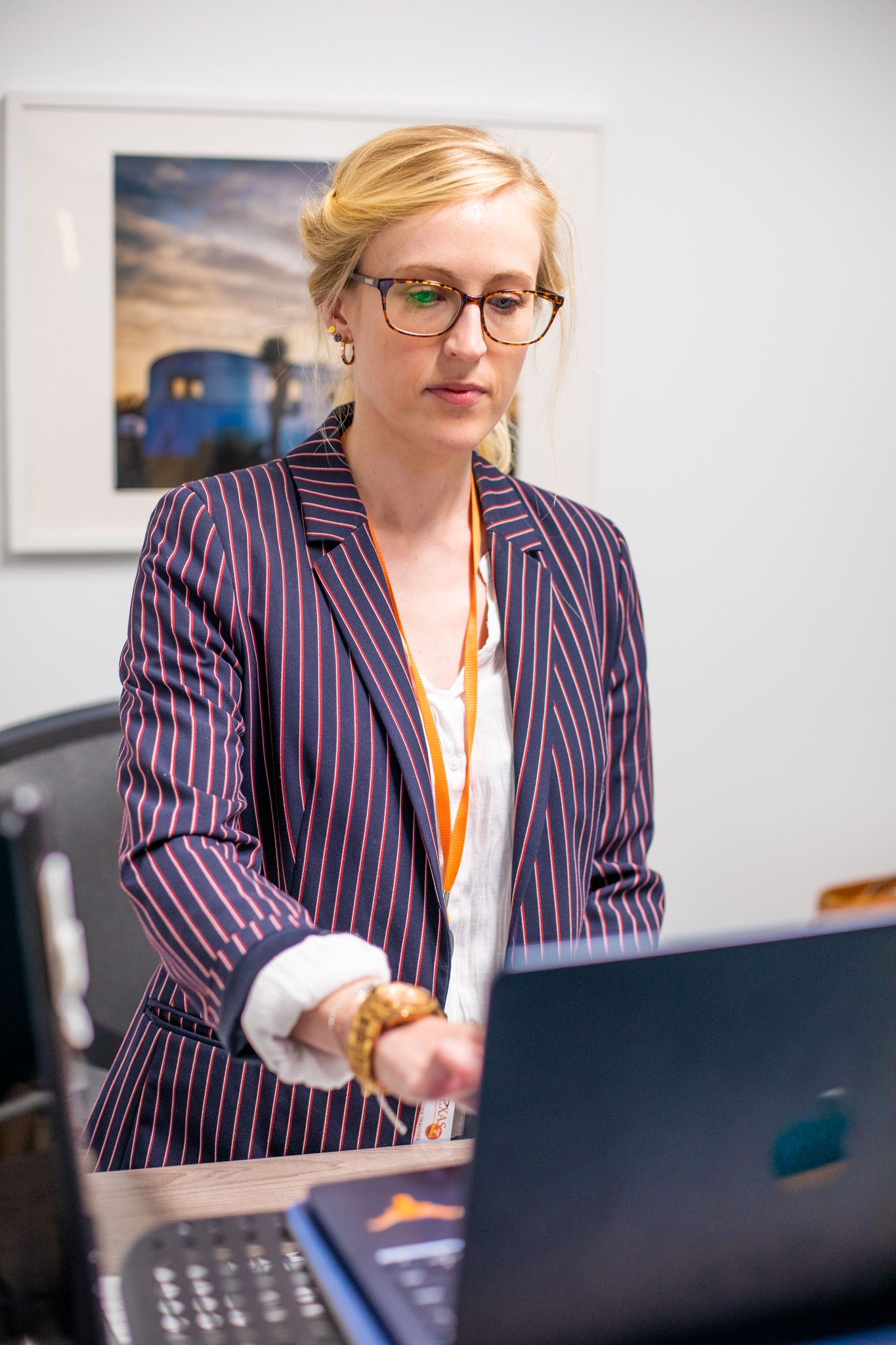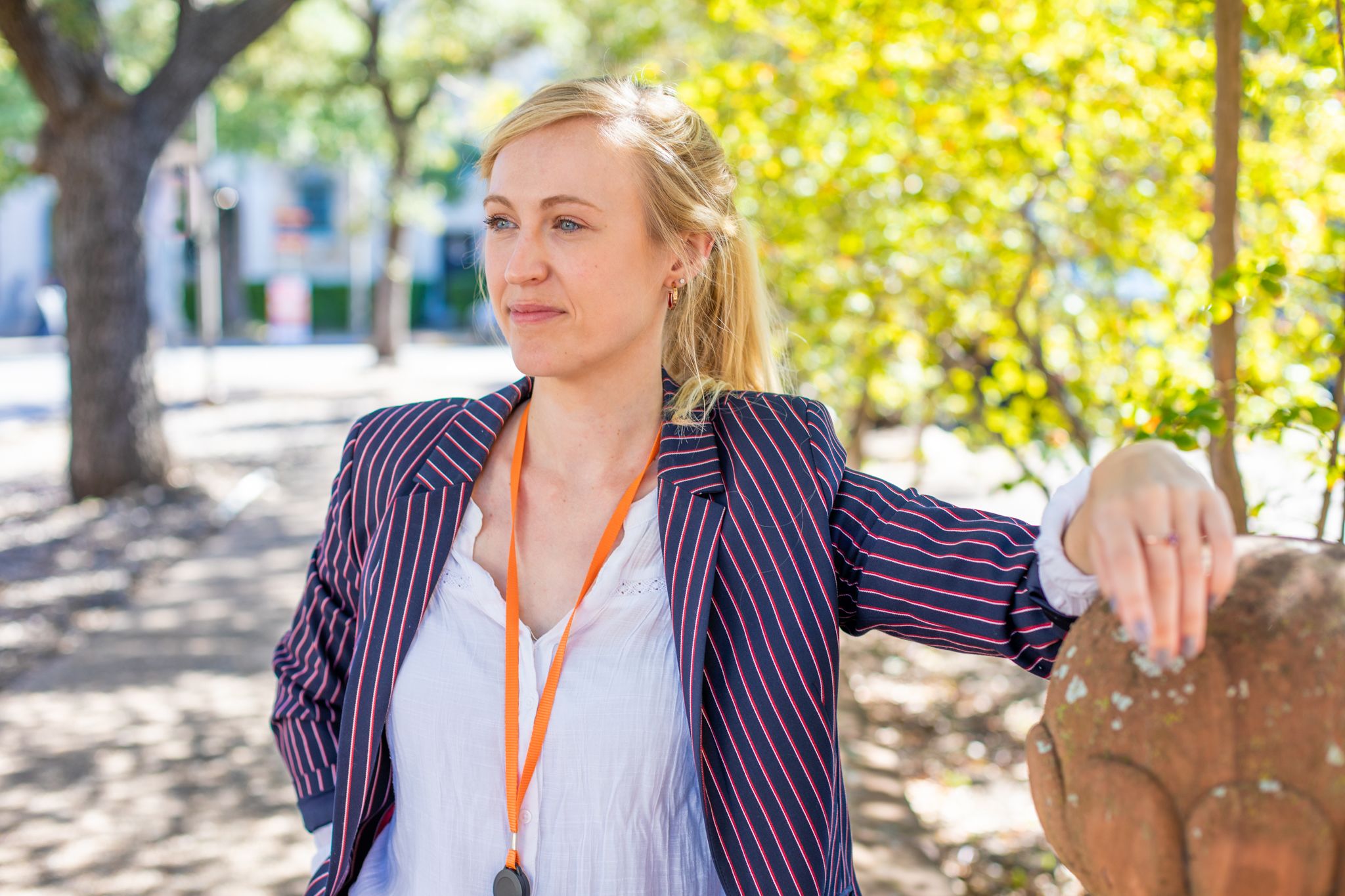Mis- and Disinformation is Rampant in Election Season. Moody is Here To Help.
Mis- and disinformation is rampant in election season. Here's what Moody is doing to help.

With every election cycle comes a plethora of new information online, but often that information is false or misleading and can hinder people’s confidence and knowledge as they head to the polls or prevent them from even wanting to participate.
Early voting for the Midterms started Monday, and while it’s not a presidential election, in Texas, the ballot is a hefty one, most notably because of the closely watched gubernatorial race between Governor Greg Abbott and once-presidential hopeful Beto O’Rourke.
In advance of the election, people are receiving a barrage of information about voter registration, candidates, poll locations and more, via email, text message, the web and social media. And not all of it is accurate.
Sam Woolley, an assistant professor in the Moody College of Communication's Department of Journalism and Media at UT Austin and program director of the Propaganda Research Lab at the Center for Media Engagement, said, before the election, internet and social media users are likely to encounter three types of harmful information:
Misinformation, the unintentional spread of false information
Disinformation, the purposeful spread of false information; and
Mal-information, or poor-quality information, such as saying that there's a lot of voter fraud, when in fact, tons of research that's out there shows there's very little voter fraud.
“Mal-information really works to undermine people’s confidence in voting at large," Woolley said.
The spread of this information tends to spike during election season, as various groups work to influence public opinion and rumors about voting, candidates and causes, Woolley said.
A large majority of misleading content focuses on where, when and how to vote, Woolley said. Online campaigns advertise the wrong election day, create confusion about poll locations or encourage people to vote by text. People may also encounter misinformation about how to register to vote or voting by mail, especially in Texas where there are very specific laws about mail-in ballots.
“Being informed about how the information system works—or doesn't—is a crucial step everyone must take in order to be involved in the democratic process,” Woolley said. “No one wants to be duped or lied to, so we've got to make sure we understand who is spreading particular streams of information and what their intentions are.”

The Propaganda Research Lab of the Moody College of Communication’s Center for Media Engagement studies how the internet, social media and digital tools are used to manipulate public opinion through politically biased, misleading or deceptive content. The lab’s researchers publish cutting-edge reports and op-eds and present findings at conferences across the world. But they also work directly with community leaders, advocacy organizations and policymakers to help stop the spread and corrosive effects of propaganda on democracy.
“The Propaganda Research Lab is one of the leading expert research institutions for the study of propaganda disinformation in the world,” Woolley said. “We're an incredibly unique organization, because we actually work alongside the people who are most impacted, and we also do a lot of interviews with the people who build the propaganda systems.”
Since April, the Propaganda Research Lab has been studying how diaspora communities are affected by propaganda and disinformation, specifically during the 2022 Midterms. These communities include first-, second- and third-generation Americans with families and connections in other countries.
“I found that it's oftentimes the most vulnerable communities in our society that are targeted with false and misleading information,” Woolley said.
This summer, a team of researchers led by Propaganda Research Lab Research Manager and Senior Research Fellow Inga Trauthig interviewed people from the Mexican American community in San Antonio; Indian American and Chinese American communities in Houston; and Cuban and Venezuelan American communities in Florida. Through long-form interviews, the team examined the types of disinformation and propaganda these communities encountered, where and how it spread and how people responded.
“We're still really behind figuring out the nuances when it comes to disinformation and computational propaganda, and what we found is that different communities are targeted differently,” Trauthig said.
While Cuban and Venezuelan Americans in Florida were often targeted with disinformation related to communism, Mexican Americans in San Antonio faced false and misleading information about immigration. Indian Americans encountered narratives that the Democratic party didn’t care for their community, as President Biden was yet to visit India. Latino communities most frequently encountered misinformation and disinformation in Spanish.
“The messaging that happens often is directly tied to people's experiences, their backgrounds, what they care about most, and it also really capitalizes on working in different languages and not just English,” Trauthig said.
The study has specifically focused on WhatsApp, as well as other encrypted messaging apps like Telegram and WeChat, where international communities most often communicate and receive information. As private platforms with little moderation, encrypted messaging apps are ripe for the spread of harmful information, Trauthig said.
In their piece “Digital Disinformation Increasingly Targets the Most Vulnerable,” Woolley and Trauthig predict that the 2022 Midterm election will be seriously challenged by manipulative, false, political messaging over encrypted messaging apps, specifically targeting diaspora communities.
“By focusing on open platforms like Facebook, Twitter and YouTube, we're missing a really big trend that disinformation is spreading to more private spaces, like WhatsApp and even text message,” Trauthig said.

Whether it be foreign actors, politicians, paid propagandists, political social media influencers or internet trolls, the motives behind spreading this information are often to cause confusion, leading people to have less confidence in their governments or to push an agenda for a certain group or topic which leads to polarization.
As an impact-focused research center, the lab is working to help diaspora communities fight back. By partnering with relevant community leaders, organizations and journalists, the lab spreads awareness of its findings and helps communities build mechanisms and tools to respond effectively.
Currently, the lab is collaborating with a computer scientist from Rutgers University to build a WhatsApp monitor. The online dashboard will allow users to trace the origins of the app’s most viral content. Trauthig said this work is especially important in promoting a healthy democracy where everyone has an equal and fair chance to participate in elections.
“The most important thing is that you have access to good information, and the second most important thing is that you actually are able to vote,” Trauthig said. “Disinformation that we have seen targeting people across the U.S. from different communities attacks both of these.”

Propaganda Research Lab Research Manager and Senior Research Fellow Inga Trauthig
Propaganda Research Lab Research Manager and Senior Research Fellow Inga Trauthig
The spread of mis- and disinformation has been exacerbated in recent years because of a growing distrust in American institutions, like journalism, academia, medicine and education, and the rise of the internet, Woolley said.
“People no longer look to experts or to people who have spent their lives studying this stuff to get the information they need,” Woolley said. “Simultaneously, the internet has created this many-to-many system where anyone can feel like they're an expert and where anyone feels like they can do their own research.”
However, people can counter the effects of misleading or false information in their own lives, by talking to loved ones who often fall into traps like conspiracy theories and helping them to change their minds or actively engaging and analyzing content before sharing it. These actions can help stop the spread of misinformation. Woolley said voting and writing letters to Congress can also produce meaningful change.
The Propaganda Research Lab also helps call for change on a systemic level. Woolley said that the U.S. government needs to more effectively regulate social media, define what data privacy means for citizens and determine how to protect people from disinformation and manipulation campaigns from both U.S. and foreign actors.
"We're kind of sold this line by social media firms and the government that we can either have free speech on social media, or we can have safety and privacy,” Woolley said. “I reject that. I think that we can have free speech, while also maintaining privacy and safety.”
Through its cutting-edge research and human-focused work, the Propaganda Research Lab is changing the world by changing how people understand and respond to propaganda and various forms of misleading, deceptive and false information. Woolley said he is particularly proud to do this work in Texas and neighboring states, since they are plagued with many “news deserts,” where people don’t have access to quality news, or suffer from informational inequality, where certain groups don’t have access to the same quality of information.
“We're really happy to be here in Texas to be working with Republicans, Democrats, independents, everyone in order to help them to stop getting tricked, because no one likes to get tricked, and no one likes to be taken advantage of,” Woolley said.

